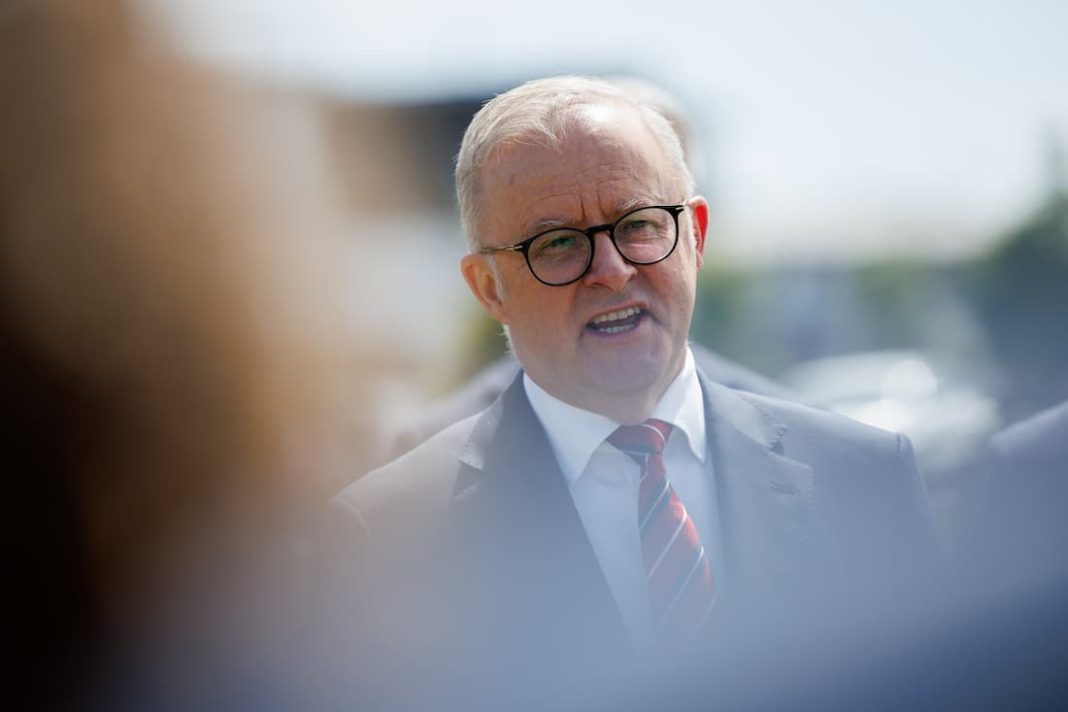The Australian government is walking a diplomatic tightrope with US President Donald Trump as he repeals policies Labor supports and threatens global trade tariffs.
The prime minister and foreign minister have danced around gender identity questions after the newly-inaugurated Mr Trump changed the definition to be only a man or woman, in a move that’s been criticised as regressing transgender rights.
Prime Minister Anthony Albanese said he wouldn’t provide a running commentary on Mr Trump’s domestic agenda when asked about the policy.
Foreign Minister Penny Wong used the same rhetoric and didn’t answer what the Australian government’s position on gender was when asked in a radio interview.
Asked what the policy would mean for the treatment of Australian officials and public servants working closely with the Trump administration, she again refused to comment saying it would wade into US domestic policy.
“I have a job to do here in Washington and that is to advocate for Australia’s interests, our security interests and our economic interests, and that’s what I’ll be doing,” she told ABC radio.
The Australian government recognises “gender is a social and cultural concept”.
“It is about social and cultural differences in identity, expression and experience as a man, woman or non-binary person,” it states.
The government has commented on the domestic policy of other nations when it comes to human rights, including Afghanistan and China.
Mr Albanese also shirked questions on Mr Trump pulling the US out of the Paris climate agreement despite his government’s strong commitment to the pact.
He pledged to continue to take action on climate change.
He has previously attacked Opposition Leader Peter Dutton over the Paris agreement, saying he couldn’t be taken seriously as an alternative prime minister after refusing to commit to a 2030 emissions reduction target.
Former Australian ambassador to the US Arthur Sinodinos said the government would likely move cautiously in the early days of the new administration “to try and determine the parameters”.
“Particularly in areas there may well be differences in policy between the two countries, such as trade,” he told AAP.
Mr Albanese vowed to work closely with the Trump administration as he congratulated the former president on retaking office.
“I look forward to having a constructive engagement with him,” he said.
The prime minister reaffirmed Australia has strong economic, defence and national security ties with the US following concerns Mr Trump could threaten Australia’s plan to buy nuclear power submarines.
There are also concerns about Mr Trump capriciously enacting trade tariffs.
“President Trump has made it very clear he’s going to do things differently. He’s made it clear he’s going to implement an America-first agenda and we should, I think, be realistic about that,” Senator Wong said.
Mr Albanese said it was in both nations’ interests for the economic relationship to continue to strengthen.
Senator Wong attended with US ambassador and former prime minister Kevin Rudd and said it was “such a privilege and honour to be the first Australian foreign minister to be invited and to attend an inauguration”.
Another former US ambassador, Joe Hockey, warned about the global shake-up a Trump presidency could usher in.
Mr Trump cutting income or company taxes meant Australia could become uncompetitive if it didn’t follow, he said.
“He’s going to be off the leash and it’s all going to unfold pretty quickly,” Mr Hockey told Nine’s Today Show from Washington.
Australia’s fragile relationship with China could also be at risk under Mr Trump’s second presidential term, La Trobe University Professor Dennis Altman said.
Mr Trump could use a trilateral AUKUS partnership to threaten Australia’s recently rekindled links with its largest two-way trading partner, he contended.
By Kat Wong and Dominic Giannini in Canberra



